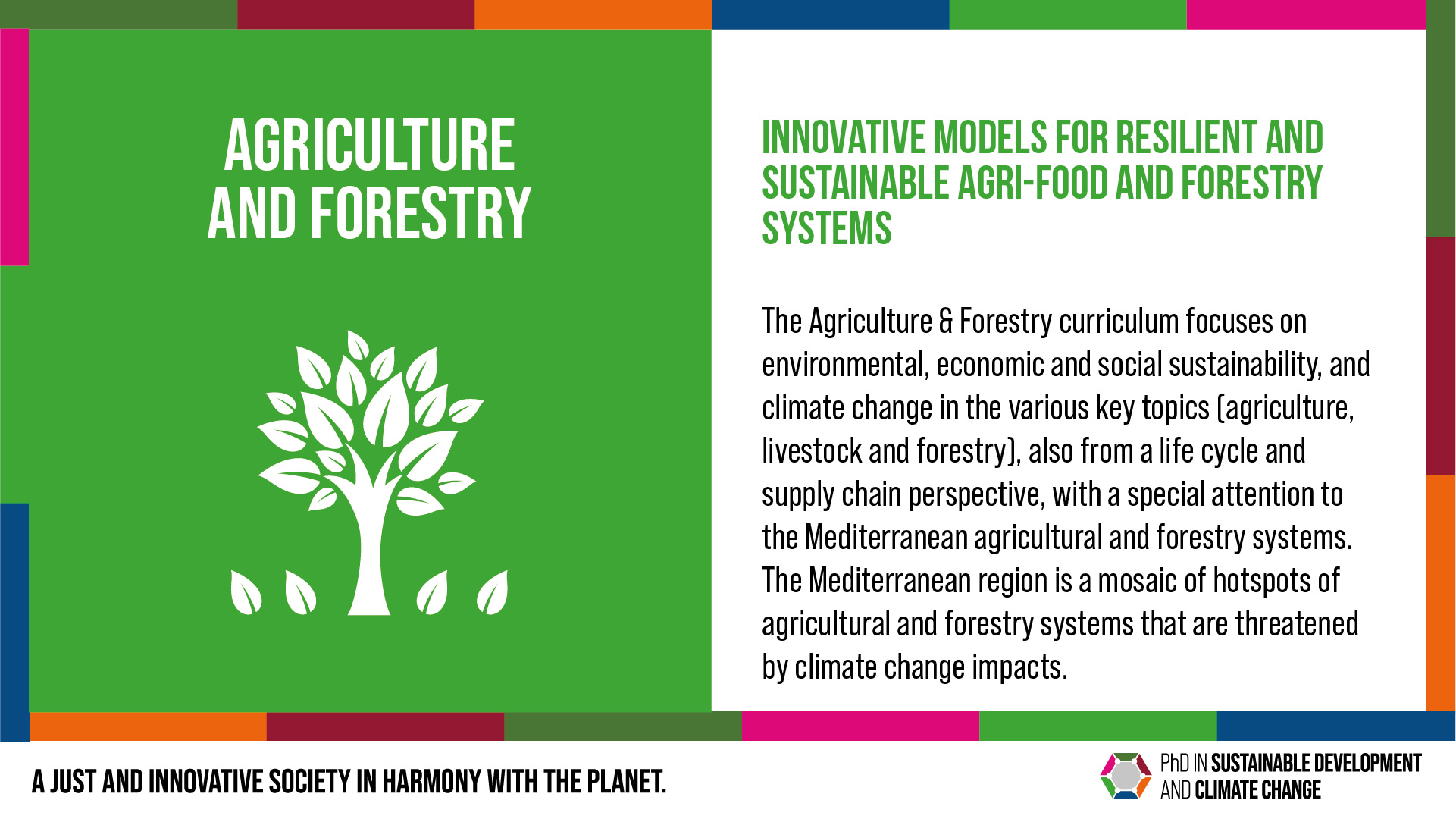The Agriculture & Forestry curriculum focuses on environmental, economic and social sustainability, and climate change in the various key topics (agriculture, livestock and forestry), also from a life cycle and supply chain perspective, with a special attention to the Mediterranean agricultural and forestry systems. The Mediterranean region is a mosaic of hotspots of agricultural and forestry systems that are threatened by climate change impacts. The course aims to train PhD’s with a solid, updated, and interdisciplinary cultural and scientific background, with a deep understanding of the systemic implications of their activity and the awareness of the importance of the relationship with businesses, administrations, and civil society, in an international contest. The goal is to trigger a change of paradigm to apply, analyze, evaluate and create new conscious and sustainable development models, providing the scientific, technical, and technological bases to implement a transformative process towards the sustainability of agriculture and forestry in a climate change context. The curriculum themes are fully consistent with the 2030 SDGs on food security, end of extreme poverty, sustainable management of water resources, quality education, combating drought, land degradation, desertification, hydro-geomorphic hazards, mitigation and adaptation to climate change.
PhD students will try to develop new tools and explore new options to face the development challenges in the agriculture and forestry domains posed by the climate in the near future. This includes: increasing the efficiency of use of natural resources of agro-ecosystems; sustain production of food and biomasses, also reducing the dependence on non-renewable resources; promoting biodiversity conservation and increasing the resilience of agro-forestry systems; guaranteeing livestock productivity and animal welfare; reducing the use of antibiotics and agrochemicals in food production; improving food quality and security/safety; investing on adaptation and mitigation to climate change; contributing to waste reduction and recycling in a circular bio-economy perspective; enhancing and promoting ecosystem services related to agriculture, livestock, urban greenery and forestry; preventing soil degradation and desertification and safeguarding the water resources.
To this end, the link with the other interdisciplinary curricula, together with the use and integration of a wide range of new emerging technologies, will contribute to the achievement of sustainable and profitable agri-food and forestry productions that are compliant with the conservation of environmental resources, the landscape and the values of equity and social solidarity. Life sciences, information technologies, crop modeling, robotics, digital agriculture technologies, renewable energies will be also considered. In this context, the analytical perspective of agricultural and forestry socio-ecosystems is also of particular importance. This perspective includes integrating research on the quantitative assessment of the climate change impacts with semi-quantitative and participatory research on strengthening the adaptive capacity of rural communities. Indeed, the future challenge imposed by climate change is the transformative adaptation, ensuring the sustainable management of natural resources and supporting the economic and cultural development of rural areas.
![]()
